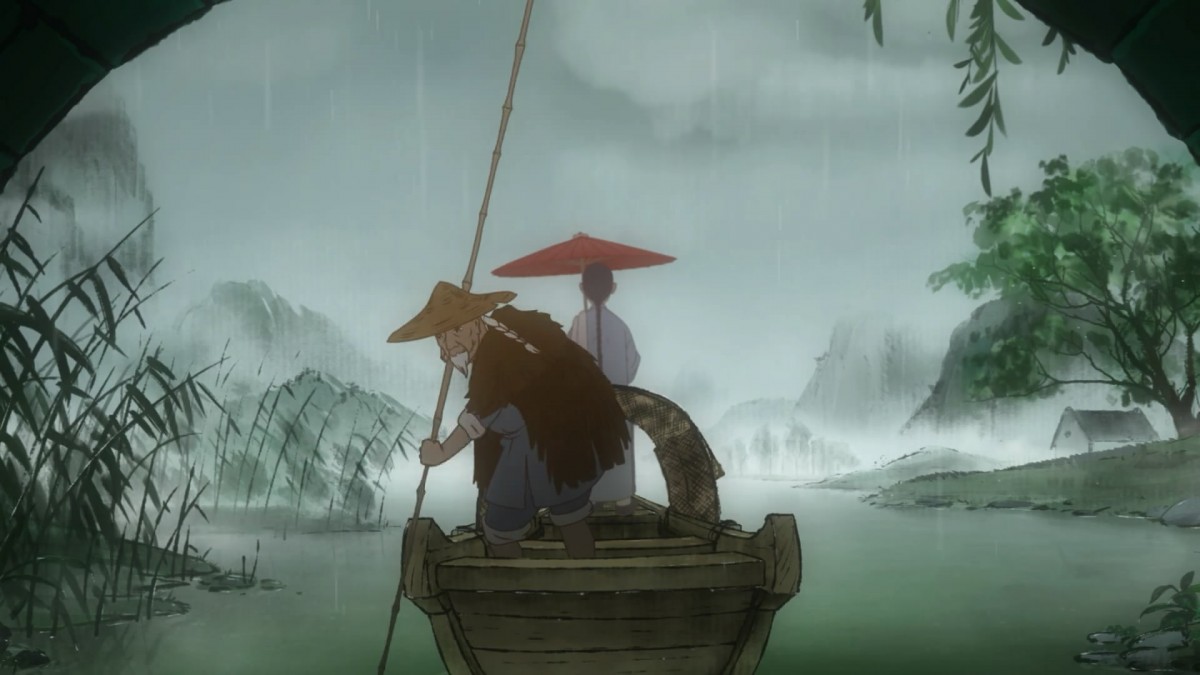Listening to the Rain: Limited Translation, Infinite Enjoyment
The classical Chinese cultural tradition is based upon a weaving together of philosophy, poetry, calligraphy and painting into a unity of wisdom experience (1). In the early poetic works, the cosmology of the Yi Jing (易经) as well as Taoist (道家dào jiā) and Confucian (儒家 rú jiā ) ideas are mixed in the poet’s world view, and in later times Buddhist elements are also introduced. The poet shares his personal message with the reader, putting his experiences into the flux of the world. Good is what is seen in nature, and there is a strong inclination to view the human being as part of the universe in which life evolves. The poems are usually brief, well-structured, written in rather familiar language and aimed at being understandable for the reader. When reading Chinese poetry, the reader has to relax, to open his or her heart and to listen.
Because of the rather different cultural traditions of China and the West, translation of a classical Chinese poem can be a significant challenge. Particularly important is that the translator is sufficiently aware of the world view of the poet; and that the language of the translation mirrors this aspect. The translation might well fail to do full justice to the experiences which the poet wished to communicate. As argued elsewhere (2), it may be better in some cases to present a Chinese poem as “Poetry in Prose”. Despite the obvious disadvantages, including loss of form and metre, the version in prose allows the use of more text to convey to the foreign reader the emotions and experiences of the poet without the restrictions of the conciseness of the Chinese poem. We have employed this approach for the short Ci poem Listening to the Rain, written by Jiang Jie (蒋捷) (1245-1310), a poet from the Southern Song Dynasty (南宋1170-1279). He tells the reader his life story and we hear about his experiences in a particular period and environment. Three time periods are described: as a young man, as a middle-aged man and finally as a man in the later part of his life.
He communicates his experiences while listening to the rain. The drizzle, falling quietly on a spring night, is symbolic of the most precious virtue of mankind. Water has been frequently employed as a metaphor in Chinese poetry and philosophy (3). Listening to the rain evokes an experience that the eternal natural processes cannot be disturbed and the poet is feeling that he is part of them. In these poems, the Chinese poet often articulates the truest music of the human soul (4).
Here follows the Chinese and pinyin text of the poem.
(虞美人) 听雨 (yú měi rén) tīng yǔ
少 年 听雨 歌 楼 上,
shào nián tīng yǔ gē lóu shàng,
红 烛 昏 罗 帐。
hóng zhú hūn luó zhàng.
壮 年 听 雨 客 舟 中,
zhuàng nián tīng yǔ kè zhōu zhōng,
江 阔 云 低 断 雁 叫 西 风。
jiāng kuò yún dī duàn yàn jiào xī fēng.
而 今 听 雨 僧 庐 下,
ér jīn tīng yǔ sēng lú xià,
鬓 已 星 星 也。
bìn yǐ xīng xīng yě.
悲 欢 离 合 总 无 情,
bēi huān lí hé zǒng wú qíng,
一 任 阶 前 点 滴 到 天 明。
yí rèn jiē qián diǎn dī dào tiān míng.
Let the poet now speak in English as we heard him:
Listening to the Rain
In my youth, I was listening to the rain which gave me joy like the singing of the girls high above in a luxurious mansion with dim red candles and silky curtains.
In my prime, I was again listening to the rain when I was forced to escape from my home town by boat. Travelling on a wide river with the clouds hanging low above the water, I heard the cry of a goose, lonely, and struggling against the west wind. Autumn was coming.
And now, I am listening to the rain again. The hair at my temples is already turning grey and I am resting in a temple, talking to monks. I accept sadness and happiness, separation and reunion as yin and yang, not stirring unnecessary emotions. Let it all be so. Many memories come up. And then I wake up, hearing the gentle drops of rain falling on the stairs till the sky is bright.
- Engberts, J.B.F.N. (2010). The natural sciences, classical Chinese philosophy, process thinking, and brain lateralization. Process Studies Supplement, 16, 1-39.
- Engberts, J.B.F.N. and Li, Q. (submitted). Chinese poetry and process thinking. The challenge of translation.
- Engberts, J.B.F.N. (2008). Water as a metaphoric model in process thought. In Dibben, M. and Kelly, Th. (Eds), Applied process thought I, initial explorations in theory and research, (pp. 223-236). Frankfurt: Ontos Verlag.
- Hamill, S. (1994). Midnight flute. Chinese poems of love and longing, London & Boston: Shambhala.
Stratingh Institute, University of Groningen, Nijenborgh 4, 9747 AG Groningen, The Netherlands
By B.F.N. Engberts and Li Qian(李茜)
(Picture from the Chinese Animation Lovesickness)

 Share on Facebook
Share on Facebook Share on Twitter
Share on Twitter Share on LinkedIn
Share on LinkedIn